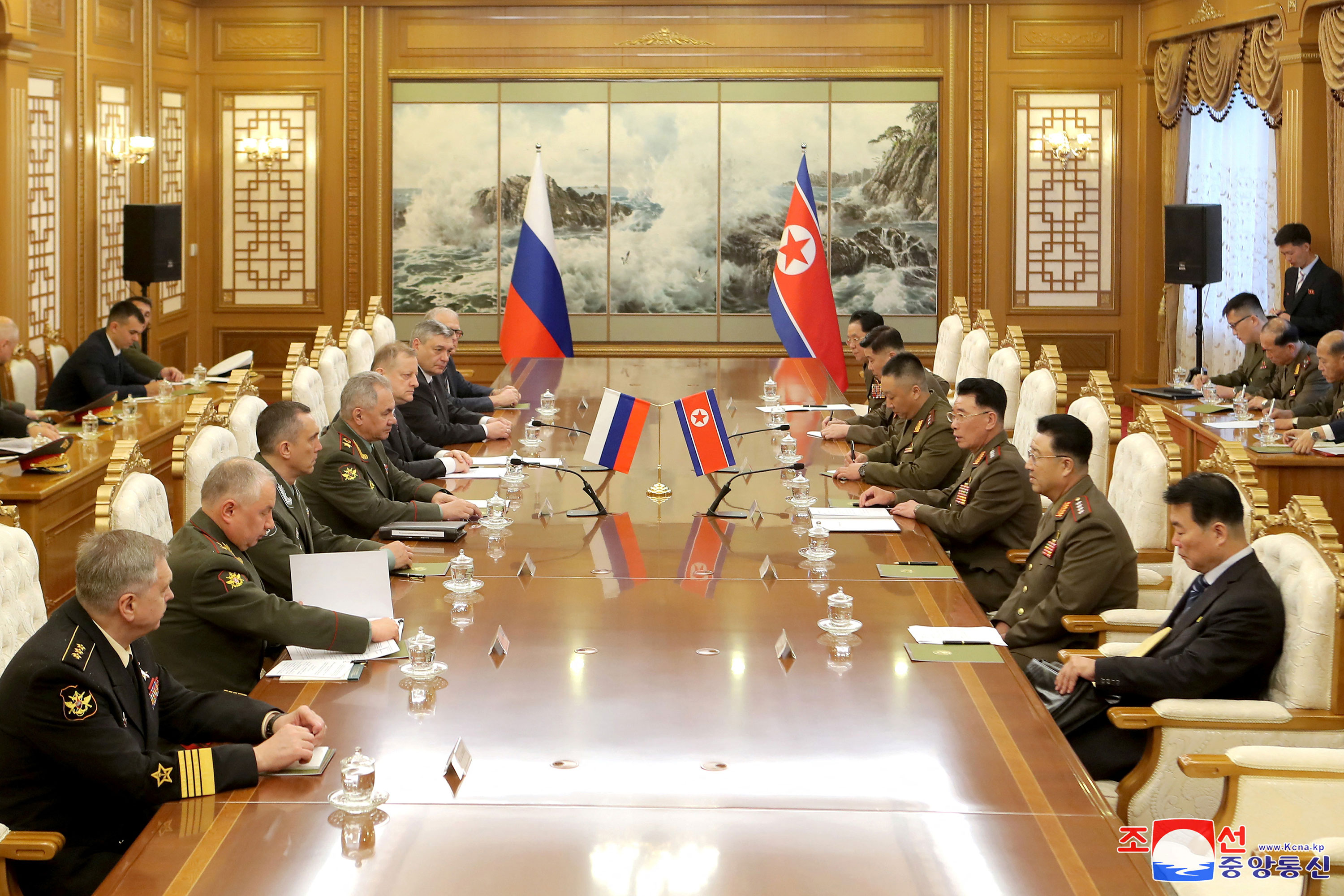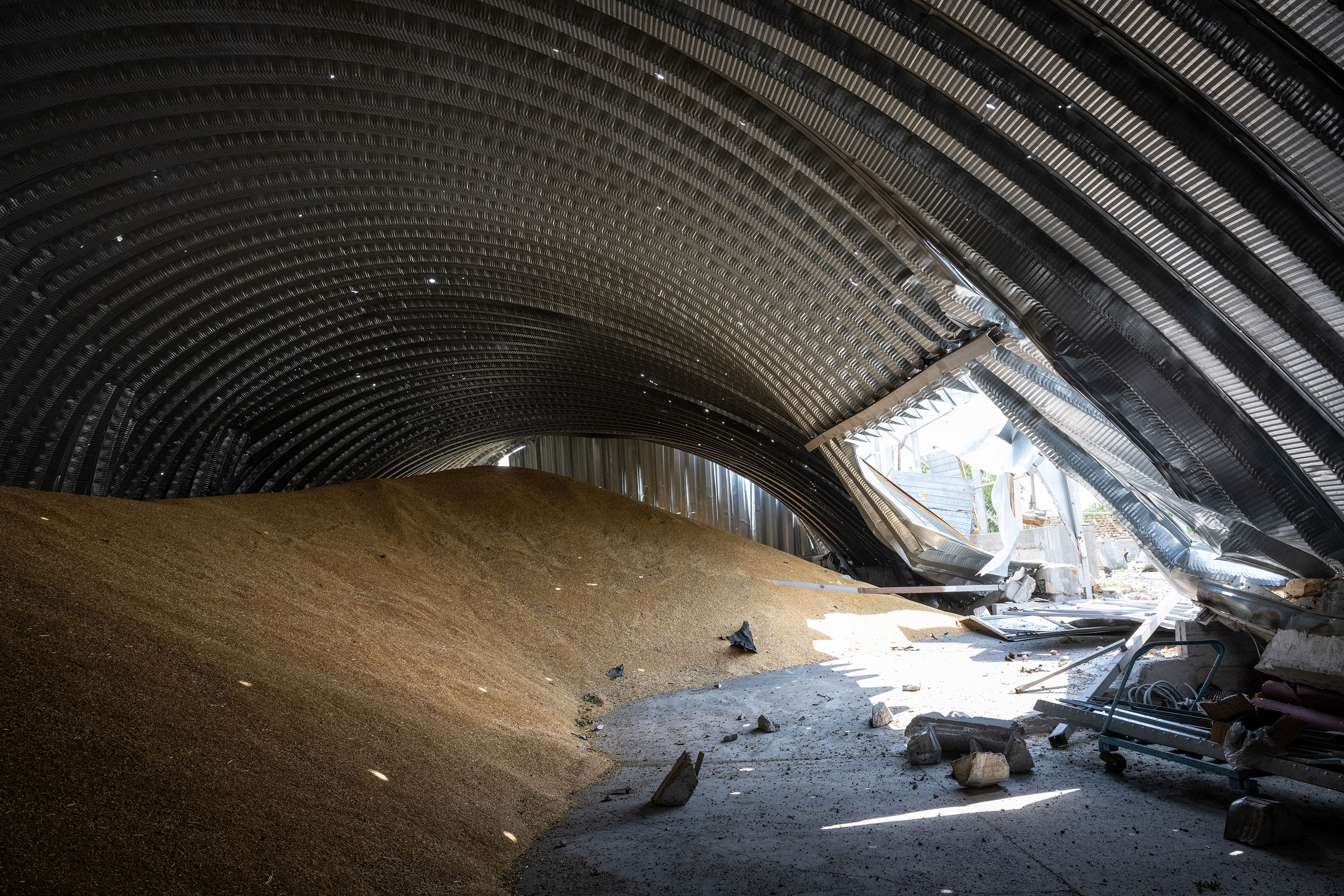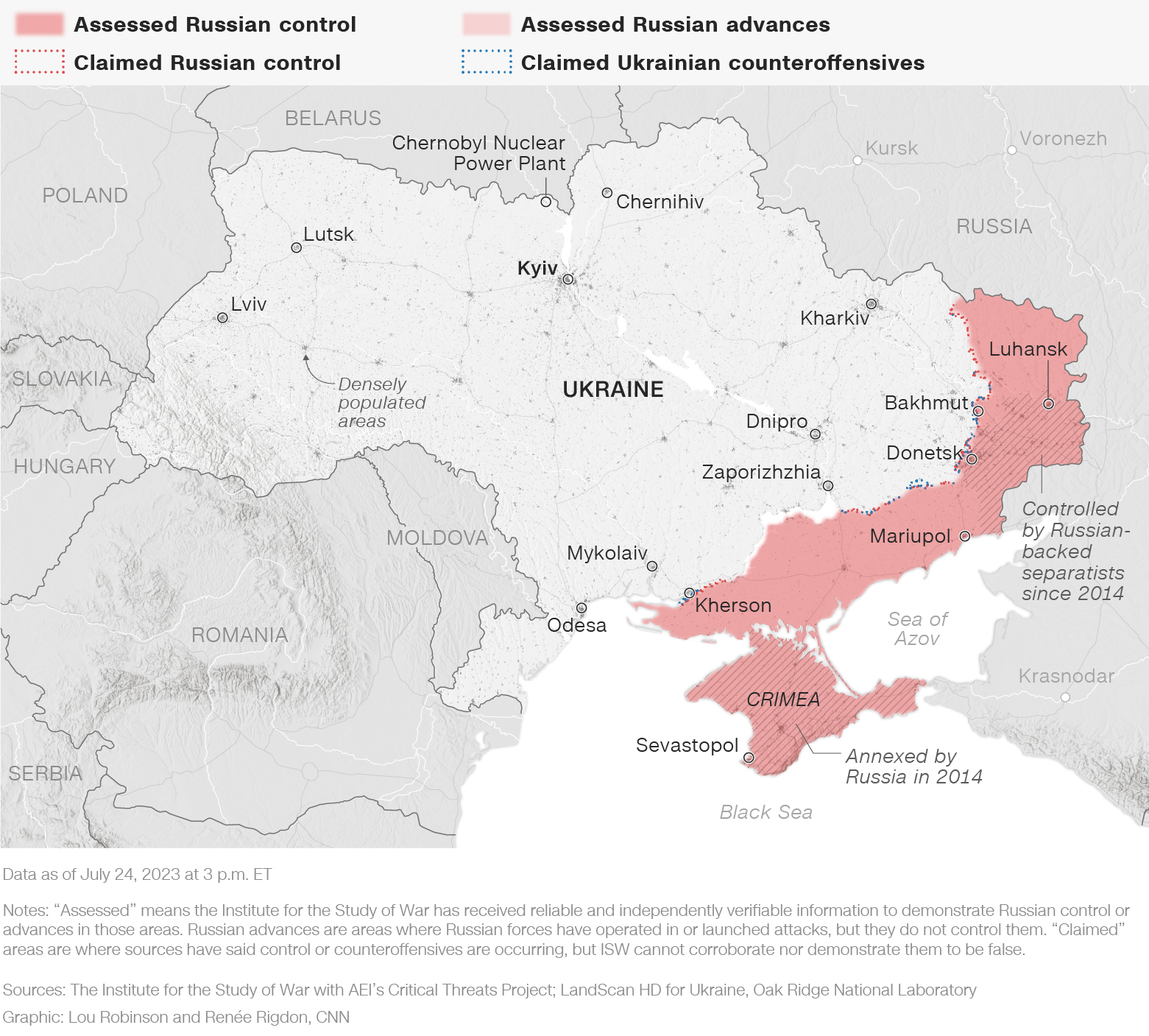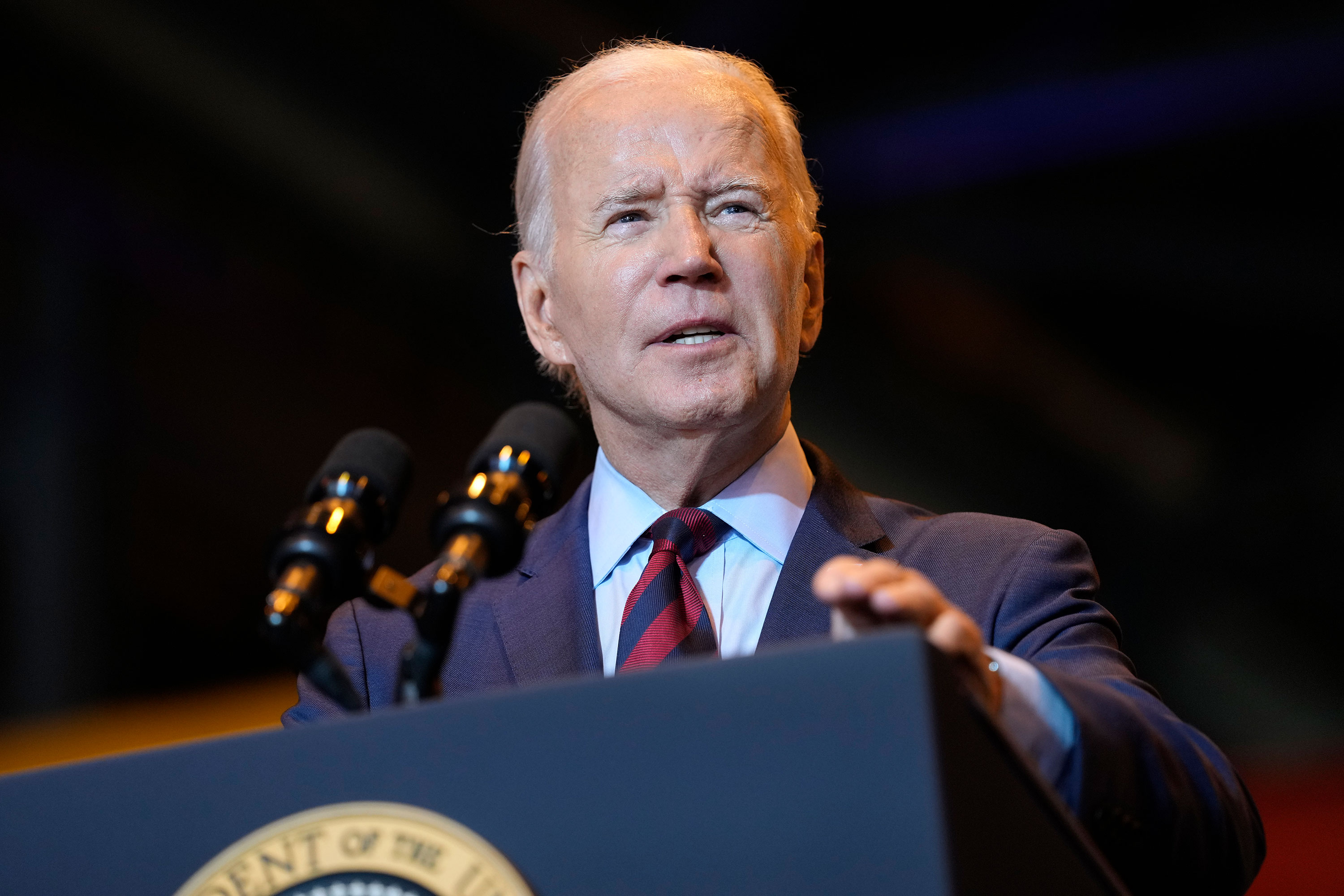Our live coverage of Russia's war in Ukraine has moved here.
July 26, 2023 - Russia-Ukraine news
By Chris Lau, Sophie Tanno, Hannah Strange, Adrienne Vogt, Elise Hammond and Tori B. Powell, CNN
North Korea "fully supports" Russia’s right to defend its sovereignty, defense minister says
From CNN’s Mihir Melwani and Gawon Bae

North Korea’s Defense Minister Kang Sun Nam Wednesday said he fully supports what he called "the just struggle of the Russian army" to "defend the sovereignty and security of the country," according to state newspaper KCNA.
During a reception welcoming the Russian military delegation to Pyongyang on Wednesday, Kang reaffirmed the mandate of the North Korean army to strengthen cooperation against the "anti-imperialist struggle," and wished the Russian army success in "building a powerful Russia" under President Vladimir Putin, KCNA reported.
Kang noted that Russian Defense Minister Sergei Shoigu's visit demonstrates the "might of the militant unity" between the Democratic People's Republic of Korea (DPRK), Russian armies and people, against a "common enemy," KCNA reported.
Shoigu also made a speech stressing that the North Korean army "has become the strongest army in the world," according to KCNA.
During his visit, Shoigu also met with North Korean leader Kim Jong Un, KCNA reported. Kim and Shoigu discussed matters "of mutual concern" regarding defense and security. The meeting served to develop DPRK-Russia relations and "strategic and tactical collaboration and cooperation," according to KCNA.
The meeting took place during a congratulatory visit by Shoigu's delegation for the 70th anniversary of the end of the Korean War, KCNA reported.
Counteroffensive developments, grain deal discussions and other headlines you should know
From CNN staff
Heavy fighting continues in the southern Zaporizhzhia region, especially around the village of Robotyne, where Ukrainian forces have been trying to break through heavily mined Russian defensive lines, according to Ukrainian and Russian accounts.
Ukrainian forces are also "gradually advancing" in the Melitopol and Berdiansk directions, Deputy Defense Minister Hanna Maliar said. Farther east, Ukraine is "making progress" and consolidating its positions in the area of Staromaiorske, she added.
Ukrainian forces have made only modest territorial advances in the south since the counteroffensive began at the end of May, committing more forces in the southeast after nearly two months of slow progress, according to two US officials — a sign that they have identified potential weaknesses in Russian defensive lines to exploit. Additionally, the Ukrainian Air Force says it intercepted 40 Russian missiles Wednesday.
If you're just now catching up, here's what else you should know:
- Military weapons and technology: More than 40 Ukrainian companies have contracts to develop drones for use in the war against Russia, according to Ukrainian Prime Minister Denys Shmyhal.
- Grain deal developments: The US and its allies are working with Kyiv on alternative land routes to deliver critical grain to the world after Russia pulled out of the grain deal that had permitted Ukrainian grain to travel through the Black Sea, the White House said Wednesday. Meanwhile, the NATO-Ukraine Council discussed what it called a "serious security situation" in the Black Sea at a meeting on Wednesday, according to the NATO website.
- Wagner and Belarus: Belarus’ Deputy Interior Minister Nikolay Karpenkov said the newly arrived Wagner fighters provide Belarus’ armed forces with a “unique opportunity” to become battle-ready.
- ICC updates: US President Joe Biden has decided to allow the US to cooperate with the International Criminal Court's investigation of Russian war crimes in Ukraine, two US officials and a source familiar with the matter tell CNN. The decision comes after months of internal debate and marks a historic shift, as it would be the first time the US has agreed to share evidence with the court. The US is not a party to the ICC.
US and allies looking for solutions to avert food crisis as Ukrainian exports are blocked by Russia
From CNN's Jennifer Hansler, Alex Marquardt and Kayla Tausche

The US and its allies are grappling with how to avert a global food crisis following Moscow’s withdrawal from the Black Sea grain deal and its subsequent attacks on Ukraine’s ports and storage facilities.
To keep Ukraine’s massive farming industry afloat, and with the harvest only a few months away, US and Western officials are looking for any options to increase storage capacity, and whether any more grain, wheat or barley can be driven or railed out of Ukraine.
Over the past several days, a number of urgent meetings have been convened by organizations including the United Nations, NATO, and the European Commission. There have been new pledges of support for Ukraine’s agricultural industry, including a new $250 million commitment from the US Agency for International Development.
But officials acknowledge that none of those solutions will be able to replace the millions of tons of food Ukraine was able to export from its deep water ports.
Attacks on grain infrastructure: Since leaving the grain deal on July 17, Russia has unleashed a flurry of attacks on grain supplies in key Ukrainian cities, including the port city of Odesa, wiping out 60,000 tons of grain, enough to feed 270,000 people for a year, British Ambassador to the UN Barbara Woodward said last Friday.
Moscow’s attack last week on Ukraine’s Chornomorsk port, which “facilitates nearly 70 percent of Ukrainian wheat exports to developing countries, caused damage that experts say will take at least a year to repair,” UN Ambassador to the United Nations Linda-Thomas Greenfield said Wednesday.
And earlier this week, Russia targeted a Ukrainian port on the Danube River near NATO ally Romania.
About the grain deal: The Black Sea grain deal, brokered by Turkey and the United Nations, lasted about a year and allowed billions of dollars worth of grain and wheat to safely transit out of war-torn Ukraine via the Black Sea. Now, Russia’s defense ministry has warned that ships sailing to Ukraine’s Black Sea ports will be viewed as military targets.
Ukraine committing more forces to counteroffensive after nearly 2 months of slow progress, US officials say
From CNN's Oren Lieberman
Ukraine has committed more forces to its counteroffensive in the southeast after nearly two months of slow progress, according to two US officials — a sign that they have identified potential weaknesses in Russian defensive lines to exploit.
The Ukrainian military still has additional combat power in reserve, but this is the "main bulk" of the forces committed to the counteroffensive, one official said.
The newly committed units had been held in reserve until now as other Ukrainian forces made slow, grinding progress against widespread Russian defensive lines and minefields while under threat of aerial assaults and artillery fire.
In the southeast, the Ukrainian counteroffensive has broken through some elements of Russian defensive lines, the official said, and the reserve units have come in to capitalize on the opportunity.
The New York Times was the first to report on the commitment of additional Ukrainian forces to the counteroffensive.
Ukrainian Defense Minister Oleksii Reznikov acknowledged over the weekend that the highly anticipated counteroffensive was behind schedule, but he insisted he was "not worried because it is going to plan."
Reznikov said that Ukraine needs to use “soldiers, sappers, and deminers” to pick their way through Russian minefields, but that they were preparing the battlefield for the "real offensive movement."
Even with the commitment of additional forces to the counteroffensive, Ukraine’s progress may not be immediate, since Russia has multiple layers of defensive lines which they’ve building and reinforcing for months.
Joint Chiefs Chair Gen. Mark Milley said last week that Russia had a “very complex defense in depth” across the front line in Ukraine, comparing it to trenches in World War I.
"They’ve got a very extensive security zone in-depth,” Milley said at a briefing following a virtual meeting of the Ukraine Defense Contact Group,” and then they’ve got at least two, perhaps even three main defensive belts."
"What the Ukrainians have, though, is a significant amount of combat power not yet committed," Milley said at the time.

On Wednesday, Deputy Defense Minister Hanna Maliar said that offensive operations along the southern front were “gradually advancing,” with similar, gradual progress also taking place further east in the area of Staromaiorsk.
Near the village of Robotyne, Ukraine’s 47th Brigade has been trying to break through heavily-mined Russian defensive lines, making use of US armored vehicles to attack enemy positions.
A member of the Russian-installed Zaporizhzhia military-civilian administration, Vladimir Rogov, wrote on Telegram on Wednesday that Ukrainian forces, backed by armored vehicles and tanks, had managed to “wedge in three sections of our first line of defense” near Robotyne.
Rogov said Russian forces were using their full arsenal, including aviation strikes, to push back against the Ukrainian units carrying out the assault, which he claimed were Western-equipped and trained.
"The fighters of these brigades have been trained abroad, and the brigades themselves are equipped with Western military equipment, including Leopard tanks and Bradley BMPs,” he wrote."
The Russian-installed governor of the Zaporizhzhia region, Yevgeny Balitsky, also said a Ukrainian attack was underway.
Ukrainian officials have not publicly commented or confirmed this offensive.
CNN's Vasco Cotovio and Olga Voitovych contributed to this report.
NATO-Ukraine Council discusses "serious security situation" in Black Sea during meeting
From CNN's Mariya Knight
The NATO-Ukraine Council discussed what it called a "serious security situation" in the Black Sea at a meeting on Wednesday, according to the NATO website.
The council strongly condemned Russia’s decision to withdraw from the Black Sea Grain Initiative and “its deliberate attempts to stop Ukraine’s agricultural exports on which hundreds of millions of people worldwide depend.”
NATO Secretary General Jens Stoltenberg accused Russia of “weaponizing hunger and threatening the world’s most vulnerable people with food instability.”
“Russia’s actions also pose substantial risks to the stability of the Black Sea region, which is of strategic importance to NATO,” Stoltenberg said, adding that “allies are stepping up support to Ukraine and increasing their vigilance.”
The NATO Allies welcomed efforts of the European Union and the United Nations “to enable the continued export of Ukrainian grain by land and sea.”
The council also condemned Russia’s recent missile attacks on Ukrainian port cities, noting that Russia has created “new risks for miscalculation and escalation, as well as serious impediments to freedom of navigation.”
Stoltenberg convened the meeting following a request for crisis consultation from Ukrainian President Volodymyr Zelensky.
Biden approves US to share evidence of Russian war crimes with International Criminal Court
From CNN's Natasha Bertrand and Jennifer Hansler

US President Joe Biden has decided to allow the US to cooperate with the International Criminal Court's investigation of Russian war crimes in Ukraine, two US officials and a source familiar with the matter tell CNN.
The decision comes after months of internal debate and marks a historic shift, as it would be the first time the US has agreed to share evidence with the court. The US is not a party to the ICC.
"It could be deeply consequential,” said one of the sources, adding that the US government now has “a clear green light” to share information and evidence with the ICC.
What information the US shares will ultimately depend on what the ICC prosecutor requests for the investigations, the source explained.
A National Security Council spokesperson would not comment directly on the decision, but said in a statement that Biden "has been clear: there needs to be accountability for the perpetrators and enablers of war crimes and other atrocities in Ukraine."
Some background: Over the course of the war, Biden administration officials have obtained evidence of alleged Russian war crimes in Ukraine, through intelligence gathering mechanisms among other channels, officials told CNN.
But the administration debated for months internally over whether to share that evidence with the court, as officials grappled with the possibility that doing so could set a precedent that could one day be used against the United States, officials explained.
The Pentagon was the most concerned about cooperating with the court, officials said, and worried that doing so might set a precedent for the ICC to investigate alleged war crimes carried out by Americans in Iraq.
Belarus minister says presence of Wagner provides "unique opportunity" for security forces
From CNN's Josh Pennington
Belarus’ Deputy Interior Minister Nikolay Karpenkov said the newly arrived Wagner fighters provide Belarus’ armed forces with a “unique opportunity” to become battle-ready.
Karpenkov told Russian state news agency RIA Novosti that Wagner was “the kind of modern army that came to us here.”
He said Belarusian President Alexander Lukashenko told law enforcement that the country's army, which has not fought for 40 years, is not combat-ready.
“[Lukashenko] said, ‘Take this as a unique opportunity. Meet them, get to know them, work together on battle formations,’” Karpenkov said.
Commanders of all special units of the Ministry of Internal Affairs have been tasked with interacting [with Wagner], Karpenkov said, so that “we could already go into battle shoulder-to-shoulder tomorrow, even here.”
“So here we will be given the unique experience that the Wagner PMC has, those fighters, those heroes. There is no other way to put it," he told the Belarusian state-run STB agency, as reported by RIA Novosti. "The use of artillery. And we will train our own specialists. And our groups will be joint in this situation. They have artillery, they have everything, let's say, to use it. And here they will help us.”
It’s not clear what, if any, heavy weaponry Wagner fighters were allowed to bring into Belarus. It was previously reported that they had to transfer such weapons to Russian regular units before leaving in convoys of cars and trucks for Belarus.
A man identified as a Wagner commander in Belarus told the agency: “We will share some experience, of course, we will show people what we can do from our side. But in general, I think that the work will be interesting, very productive.”
“Here the military guys are disciplined, very high level guys who communicate with us about what we are seeing … We both understand what's at stake and are ready to get to work," the commander said.
The number of Wagner personnel currently in Belarus isn’t clear. Over the weekend, Andrii Demchenko, a spokesperson for the State Border Guard Service of Ukraine, said the number of Wagner fighters in Belarus “may reach about 5,000.” He said initially there were hundreds, but that mercenaries kept arriving.
Ukraine intercepts 40 Russian missiles, Ukrainian air force says
From CNN's Mariya Knight and Svitlana Vlasova
The Ukrainian Air Force says it intercepted 40 Russian missiles Wednesday.
“A total of 36 missiles were launched from eight Tu-95MS strategic bombers,” the Ukrainian air force said, adding that all 36 were destroyed.
The destroyed targets included three Kalibr cruise missiles and 33 X-101/X-555 cruise missiles, it said.
“The missiles entered Ukrainian airspace from the southeast and headed west, constantly changing direction,” the statement said.
In addition, four Kh-47 Kinzhal missiles were fired from MiG-31K fighter jets toward the Khmelnytskyi region, according to the air force.
Serhii Tiurin, first deputy head of the Khmelnytskyi regional military administration, said the attack was repelled and debris from the missiles fell on settlements of the Khmelnytskyi district.
“According to the available information, there are no casualties at the moment,” Tiurin said.






